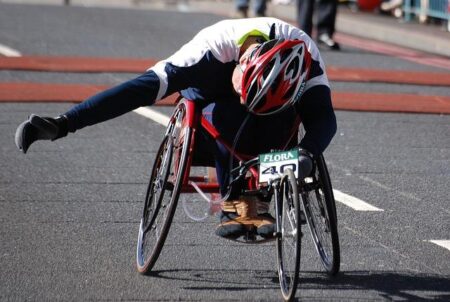In a growing call for systemic change within the cycling world, the Women’s Riders’ Union has voiced urgent concerns regarding the inadequacies of current frameworks designed to safeguard female athletes’ health. This plea comes on the heels of heated discussions surrounding the implications of the recent Tour de France Femmes event, where the spotlight on women’s wellbeing has highlighted critical gaps in support and resources. As the cycling community grapples with these revelations, the union is advocating for reforms aimed at prioritizing the health and safety of female riders, underscoring that the existing system falls short of adequately addressing their needs. In this article, we explore the union’s demands for change and the broader implications for women’s cycling.
Calls for Enhanced Support Structures in Women’s Cycling Highlighting Health and Wellbeing
The recent call for improved support structures in women’s cycling has ignited a pivotal conversation surrounding the health and wellbeing of female athletes. Advocates argue that the existing frameworks within professional cycling often fail to address the unique challenges faced by women in the sport. Nutrition, mental health, and physical wellness are crucial aspects that require targeted attention to ensure riders can compete at their best without compromising their health. Current training regimens and schedules may not adequately incorporate these necessary elements, which could lead to detrimental health effects for riders who are pushing their limits on the road.
To confront these issues head-on, various unions and advocacy groups are suggesting comprehensive changes aimed at fostering a healthier environment for women cyclists. These proposals include a structured approach to rest periods, mental health resources, and education on nutrition tailored for female physiology. A focus on creating a balanced competition calendar, alongside supportive measures such as access to sports psychologists and dietitians, could drastically improve the overall wellbeing of riders. For example, implementing workshop sessions to discuss and practice self-care techniques within existing team frameworks has been proposed as a practical step towards a more nurturing atmosphere for athletes.
| Proposed Change | Benefits |
|---|---|
| Structured rest periods | Enhances recovery and reduces burnout |
| Access to mental health resources | Improves emotional resilience and coping strategies |
| Nutrition workshops | Promotes optimal performance and health |
Advocates Push for Systemic Reforms to Address Female Athlete Health Concerns
As discussions surrounding the welfare of female athletes intensify, advocates within the women’s cycling community are increasingly vocal about the urgent need for systemic reforms that prioritize health and safety. The recent debates ignited by the Tour de France Femmes spotlighted critical issues such as inadequate medical support, insufficient research on women’s health topics, and disparities in treatment compared to male counterparts. Stakeholders argue that the current framework is fundamentally flawed and fails to address the unique physiological and psychological needs of female athletes.
To combat these challenges, a coalition of athletes, coaches, and medical professionals are pushing for the implementation of a comprehensive health policy framework that includes:
- Increased Research Funding: Allocating resources specifically for studies on women’s health in sports.
- Standardized Health Protocols: Developing guidelines that ensure female athletes receive consistent and adequate medical care.
- Education and Training: Offering specialized education for coaches and staff on the unique aspects of female athlete health.
These proposed reforms aim not only to enhance the competitive environment for female cyclists but also to foster a culture where their health is paramount. By addressing these systemic issues, the cycling community hopes to build a safer and more supportive framework that empowers women athletes at all levels.
Tour de France Femmes Sparks Urgent Need for Comprehensive Health Policies in Cycling
The recent discussions surrounding the Tour de France Femmes have underscored alarming gaps in the support and protection of female cyclists’ health. As the cycling world witnesses a surge in interest and participation among women athletes, it has become glaringly apparent that existing health policies fall short in addressing the unique physiological and mental health needs of female riders. Advocacy groups, including the women’s riders’ union, are rallying for swift reforms that prioritize the overall wellbeing of these athletes. Essential areas for attention include:
- Menstrual Health Management: Access to appropriate care and resources for menstrual issues.
- Nutrition Programs: Tailored nutrition plans that consider the specific dietary requirements of female athletes.
- Mental Health Support: Comprehensive mental health services to address stress, anxiety, and other psychological factors affecting performance.
- Injury Prevention: Guidelines geared towards minimizing injuries that disproportionately affect women in cycling.
The need for a robust framework is further highlighted by statistics reflecting the health challenges faced by female cyclists, which often go unreported and unsupported. A recent table summarizing these pressing issues illustrates the disparities in health considerations:
| Health Concern | Current Protocol | Recommended Action |
|---|---|---|
| Menstrual Disorders | Limited resources | Dedicated healthcare access |
| Nutritional Guidance | Generalized plans | Custom nutrition programs |
| Mental Health | Stigma around seeking help | Mandatory support systems |
| Injury Treatment | Insufficient prevention measures | Established injury protocols |
The call for change reverberates through conversations among athletes, coaches, and medical professionals, highlighting that the cycling community has a collective responsibility to create an environment where female athletes can thrive-physically and mentally. The transformation of cycling policies to include comprehensive health considerations will not only improve the performance levels of women riders but also enhance their overall experience in this exhilarating sport.
Insights and Conclusions
In conclusion, the ongoing discussions surrounding the wellbeing of female cyclists highlight the urgent need for systemic changes within the sport. The Women’s Riders’ Union has brought crucial attention to the inadequacies of the current framework, emphasizing that the health of female athletes must remain a priority. As the cycling community reflects on the insights gained from this year’s Tour de France Femmes, it is clear that addressing these issues is essential for fostering a safer and more equitable environment. Stakeholders, including governing bodies, teams, and sponsors, must work collaboratively to implement reforms that not only safeguard the health of women riders but also enhance the integrity and future of women’s cycling. As the push for change gains momentum, the hope is that cycling’s governing bodies will heed these calls, ensuring that the road ahead is one where female athletes can thrive in both performance and well-being.











